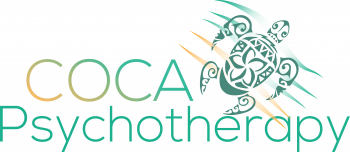Programs & Courses
Learn to enhance and empower your life through innovative programming.
Emotions 101

Here we will discuss the function of emotions and its characteristics.
You will build awareness on myths that you may have about emotions, as well as belief systems that were developed during childhood and life experiences that impact your view of emotions, and therefore your view of self as you experience emotions.
You will learn strategies to observe and describe your emotions. This will allow you to better understand your experiences and reactions, and how your thoughts influence your emotions, which then influence your behaviours.
Emotions 102
The goal of this course is to differentiate emotions that are related to crisis (distress tolerance), versus learning how to manage emotions day by day (emotion regulation).
We will uncover what makes it difficult to regulate emotions so that you can better prepare for future difficult situations.
We will also explore strategies to maintain a healthy emotional balance.

Preparing for Change (Part 1)

In this course we will explore different stages of change we may experience, as a result of a life transitions.
We will explore our readiness to make changes, how to engage in change, and what internal or external barriers make it difficult for us.
You will learn strategies like radical acceptance, letting go and connecting with what is in our control versus out of our control.
The Personal Iceberg
The Personal Iceberg is a technique that can be used to explore the self and to bring about awareness of the process involved in understanding our emotions and how we cope under stress.
This powerful program allows us to better align our life.

Communication Stance

Once you better understand your internal iceberg, it is easier to see patterns in your reactions to stress. We call these communication stances.
Understanding your own communication stance, as well as those of others around you can provide you with some insight into what is working and what is not.
It can also be helpful to understand communication stances within our family of origin (caregivers, parents, siblings, etc.) growing up, as this can lead to better understanding of current family dynamics.
Preparing for Change (Part 2)
Now that you have dived into the various courses we offer, we invite you to continue processing this information.
Let’s explore further what changes you would like to make, which ones you are not ready to make and the impact of each decision. This will mean exploring family rules or belief systems that are preventing us from making changes. It can also mean exploring expectations that may not be realistic.
The end result is creating a new narrative that works for you today. This narrative will include listening to your yearnings in life and finding your core self.

Working With COCA Psychotherapy
Most insurance companies provide coverage for counselling services.
We may also offer free services to clients through Non-Insured Health Benefits for First Nations & Inuit (NIHB) & Victim Services

